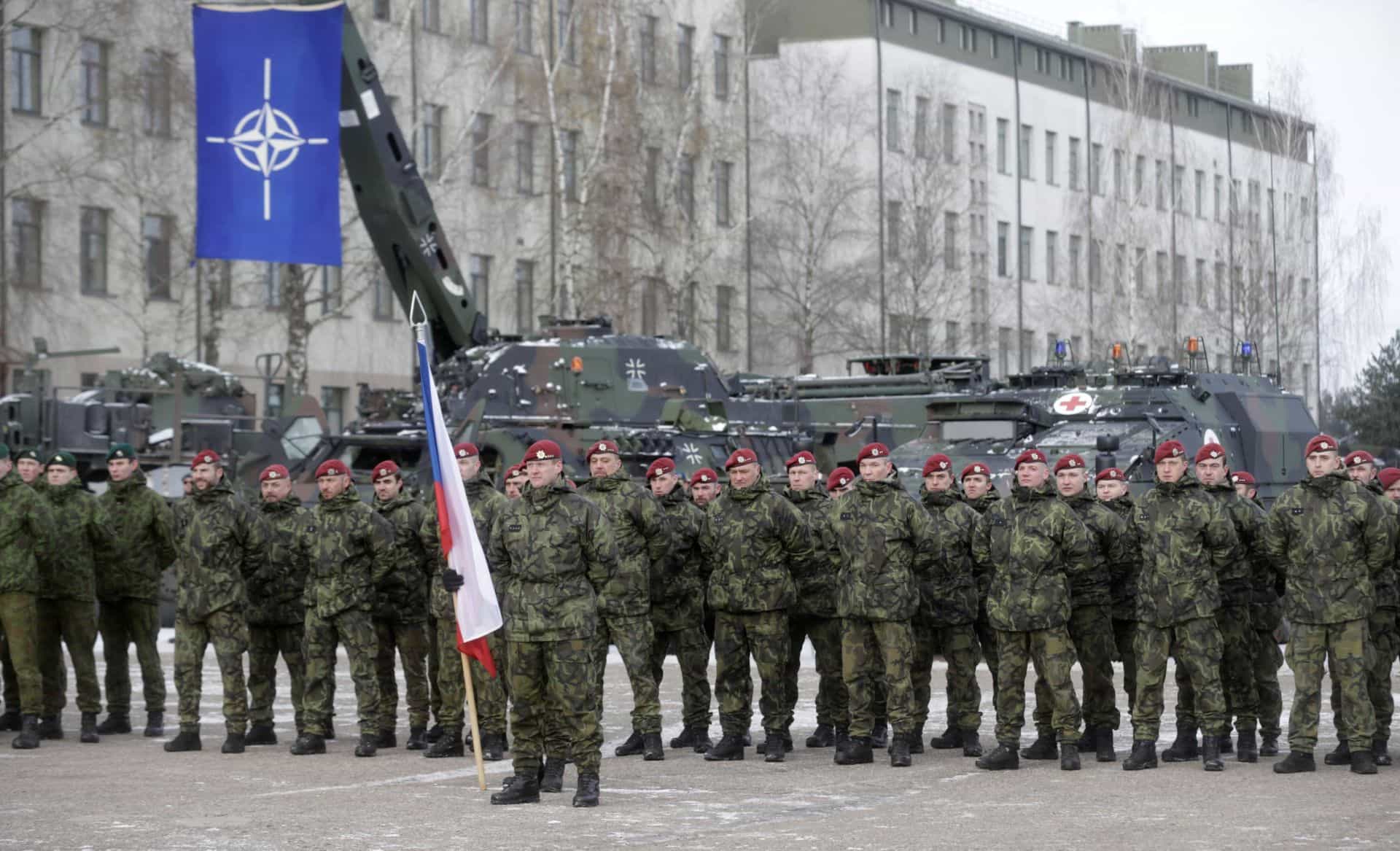Germany has hit back at US President Donald Trump’s claims that Berlin owed “vast sums of money” to Nato, following a less than cordial meeting with Chancellor Angela Merkel at the White House.
The comments from German Defence Minister Ursula von der Leyen came as Trump’s spokesman denied that the US leader had refused to shake hands with Merkel, arguably the most powerful woman in world.
The stark differences between Trump and Merkel on everything from trade to immigration were in full view during their frosty first White House meeting on Friday.
Although the visit began cordially enough, with the pair shaking hands at the White House entrance, Merkel’s suggestion of another handshake in the Oval Office went unheard or ignored by Trump – an awkward moment in what are usually highly scripted occasions.
“I don’t believe he heard the request,” Trump’s spokesman Sean Spicer told German weekly Der Spiegel published yesterday.
But Germany’s top-selling Bild newspaper said that was “improbable”, saying that throughout the meeting, Trump did not once look Merkel in the eye.
The difficult encounter came as a new row erupted over environment at a G20 meeting of finance ministers in Germany, when Trump’s administration defied the international community by refusing to renew a pledge on climate change.
The ministers were forced on Saturday to leave out an entire section related to the Paris accord on combating climate change after US Treasury Secretary Steven Mnuchin said that green issues were “not in my track”.
“Donald Trump is trying to ruin Merkel’s G20 summit” being hosted by Germany in July, Die Welt newspaper charged.
Trump had lashed out at the media in a Saturday morning tweet over its view of the Merkel meeting.
“Despite what you have heard from the FAKE NEWS,” he said, “I had a GREAT meeting with German Chancellor Angela Merkel.”
But he then added: “Germany owes vast sums of money to NATO & the United States must be paid more for the powerful, and very expensive, defence it provides to Germany!”
Germany’s defence minister Von der Leyen, a close Merkel ally, rebuffed his comments yesterday.
“There is no account where debts are registered with Nato,” she said in a statement, adding that Nato spending should not be the only criteria used to measure Germany’s military efforts.
Merkel said Berlin was committed to increasing its military spending to 2% of GDP, a 10-year- target that North Atlantic Treaty Organisation (Nato) member states formally agreed to in 2014.
Trump had made European defence spending an issue during his election campaign, saying that the US – which spends just over 3% of its GDP (gross domestic product) on defence – carries too much of the financial burden for supporting Nato.
Germany, whose war-time past has led it traditionally to be reticent on military matters, currently spends 1.2% of GDP on defence.
Von der Leyen said yesterday that Germany’s increased military spending would not go only to Nato but would also be used for participating in UN and European peacekeeping missions and to contribute to the fight against the Islamic State (IS) extremists.
“To try to link the 2% (of (GDP) that we are aiming by the middle of the decade is erroneous,” she said.
Trump critics pointed out that Nato members don’t pay the United States for security, but contribute by spending on their own militaries.
“Sorry, Mr President, that’s not how Nato works,” tweeted Ivo Daalder, a former US ambassador to Nato. “This is not a financial transaction, where Nato countries pay the US to defend them. It is part of our treaty commitment.”










